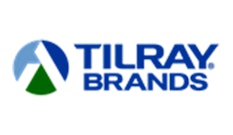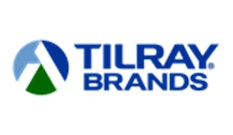
As the cannabis industry matures, it is looking to more mainstream markets to adopt common business practices, such as white labeling.
A common manufacturing and marketing practice, white label branding is when a product is manufactured by one company and then rebranded and sold by another company. White labeling can benefit cannabis companies in many ways, according to Wes Jess, vice president of manufacturing and supply chain at Caliva, one of California’s largest vertically integrated cannabis operations. The company carries its own products in its retail locations, from flower to a variety of vape cartridges and tinctures, and also produces white label products for its retail partners.
Cannabis manufacturers and dispensaries often form this kind of partnership, with retailers contracting with manufacturers on their own unique lines of branded products, Jess says.
“If I were a dispensary, I would think, ‘Is my dispensary a brand? Is it a product?’” he says. “In some cases, they’re not sure, and in the case where they aren’t sure, that’s the perfect opportunity for them to try white labeling.”
Even if dispensaries are vertically integrated and produce their own products, they can still contract with manufacturers to white label and expand into a new product category, Jess adds.
Why White Labeling Makes Sense
Every dispensary should have its own brand, Jess says. “If a dispensary hasn’t counted itself as a brand, they really should because the clientele is shopping there for a reason.”
Once a retailer understands its customers and what they buy, it should create its own branded product line to satisfy customers’ needs and keep them coming back for the products they want, he says. “It makes your customer base a lot more sticky.”
RELATED: Build Consumer Trust: Cannabis Branding and Marketing Explained
Often, customers want to buy product direct from the source, not shop through a middleman, Jess adds. When a dispensary carries its own brand, customers see that the retailer owns that unique idea and product formulation. “To me, that carries a lot of power,” he says.
And white labeling is much more cost-effective for non-vertically integrated dispensaries, which would otherwise need to acquire the space, equipment and staff needed to create their own products, Jess adds. “White label with somebody, test it in the store, see if it sells well and adjust based on that.”
In addition, by using contract manufacturers, retailers can bring product to market faster and more easily change product lines as customers’ needs change than if they invested the capital to produce one specific product line themselves, Jess says.
“Access to a [white labeling] team can also create some really unique products for you,” he adds. “Just think of the infrastructure it would take to produce a product—that’s what white labeling really helps solve, both in the short- and long-term. The other thing is just the cost, in general. Not just the expertise, but the cost to go do it is another crucial point.”
White labeling can also be incorporated into a co-branding strategy with another company, Jess adds. For example, if a manufacturer has its own formulations for a vape cartridge and they like another manufacturer’s hardware, they can co-brand with the other manufacturer and get its formulation put into that hardware in a co-branded product.
Choosing a Product Line
Many factors should be considered when deciding which products to white label, Jess says. First, consider the size of the dispensary—some are too small to display jars of product, for example. The demographic of the customers is another factor, he adds. Some stores attract mostly tourists who will have one-time transactions, where others will have repeat customers who regularly visit to stock up on their favorite products, and each demographic will demand different items.
In addition, the formulations of white label products should be different from the third-party products carried by the dispensary, and they should satisfy a gap or an underserved part of the market, Jess adds.
And retailers should start small when it comes to white labeling. “I don’t recommend going with a full-blown product line—they should think up a new or interesting product that fits well with their own strategy,” Jess says.
Finally, products should be named very carefully, he adds. “In our industry, people come up with all kinds of fancy names for products, but sometimes when people sample the product, they say … the name doesn’t match the experience that the customer’s expecting,” he says. “So, lining those up and even testing names with people [who taste] the formulations [is important]. There’s a lot of art and science associated with that, and it’s something that we take very seriously.”
Finding the Right Partnerships
Retailers should use manufacturers they know and trust for white labeling services, Jess says, and they should avoid companies that are launching white labeling for the first time. “Most of the people we talk with are known entities, either through us selling product through them, or we carry their product, for example, in our retail store.”
A manufacturer’s consistency, delivery, distribution and price points should all be considered before a contract is drafted, as well as how the dispensary and manufacturer will share the cost of the materials.
Dispensaries should partner with manufacturers that have quality formulations, Jess adds. Labs should have the ability to formulate the products a dispensary wants with the desired THC and CBD levels, for example.
“Formulations, to me—it’s what makes the product valuable,” Jess says. “The other parts are just form factors and how consumers want to consume that, whether that’s in a vape, a topical [or] a flower.”
Potential Pitfalls
Picking the wrong partner is perhaps the largest potential pitfall in white label manufacturing, Jess says. “We’re very choosy about who we do business with. We need to make sure it’s a good fit for both sides.”
Manufacturers and dispensaries should work with businesses they are familiar with or that they already have a working relationship with, he says. And companies should not base decisions solely on price.
“I’d rather go with somebody that is really a trusted brand and then have the expertise in the back end,” Jess says. “If I were to say a No. 1 pitfall, … it is just somebody shopping for price and sometimes it comes back to the old adage you get what you pay for.”
Dispensaries should also be on guard against manufacturers that are able to make a product, but cannot distribute it, or cannot distribute to all the desired stores.
Compliance can also be a potential pitfall, especially in California, which has been rolling out its cannabis testing regulations in phases, Jess says. “When Category 1 [testing rules] came out in January [and then] Category 2 came out in July, there were so many … manufacturers with manufacturing licenses who were not ready to produce Category 2 product.”
Therefore, partnering with a manufacturer that is prepared to produce products that are compliant with all applicable regulations is essential for dispensaries.
Top Image: © BillionPhotos.com | Adobe Stock

























